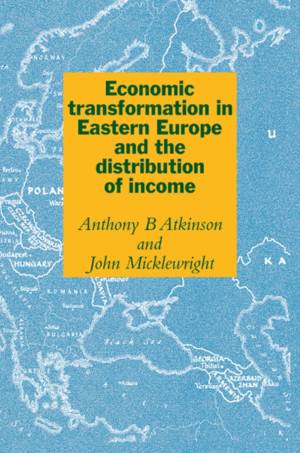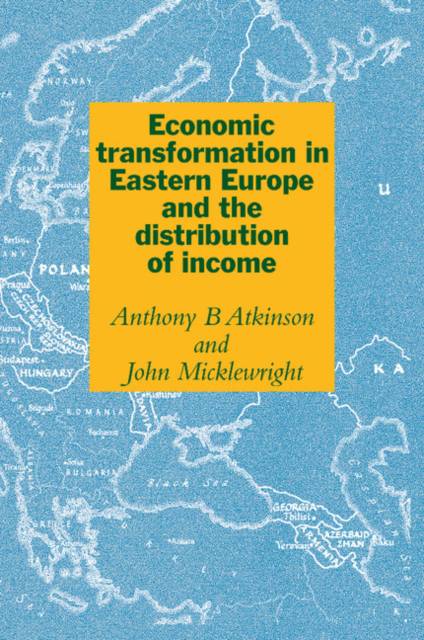
- Afhalen na 1 uur in een winkel met voorraad
- Gratis thuislevering in België vanaf € 30
- Ruim aanbod met 7 miljoen producten
- Afhalen na 1 uur in een winkel met voorraad
- Gratis thuislevering in België vanaf € 30
- Ruim aanbod met 7 miljoen producten
Zoeken
Economic Transformation in Eastern Europe and the Distribution of Income
Anthony Barnes Atkinson, John Micklewright
Paperback | Engels
€ 74,95
+ 149 punten
Omschrijving
Who gains and who loses from economic transformation in Eastern Europe is a key question--but one that is too rarely discussed. To understand the implications of the move to a market economy, it is necessary to know more about the distribution of income under Communism. This book assembles evidence about earnings, dispersion, income inequality and poverty in Czechoslovakia, Hungary, Poland, the USSR (with separate information for Russia, the Ukraine and other republics). It adopts a comparative perspective--bringing out the differences between these countries and the West, as well as within Central and Eastern Europe. It shows that widely held beliefs about Eastern Europe under Communism are not borne out by the evidence.
Specificaties
Betrokkenen
- Auteur(s):
- Uitgeverij:
Inhoud
- Aantal bladzijden:
- 466
- Taal:
- Engels
Eigenschappen
- Productcode (EAN):
- 9780521438827
- Verschijningsdatum:
- 30/10/1992
- Uitvoering:
- Paperback
- Formaat:
- Trade paperback (VS)
- Afmetingen:
- 152 mm x 228 mm
- Gewicht:
- 635 g

Alleen bij Standaard Boekhandel
+ 149 punten op je klantenkaart van Standaard Boekhandel
Beoordelingen
We publiceren alleen reviews die voldoen aan de voorwaarden voor reviews. Bekijk onze voorwaarden voor reviews.











